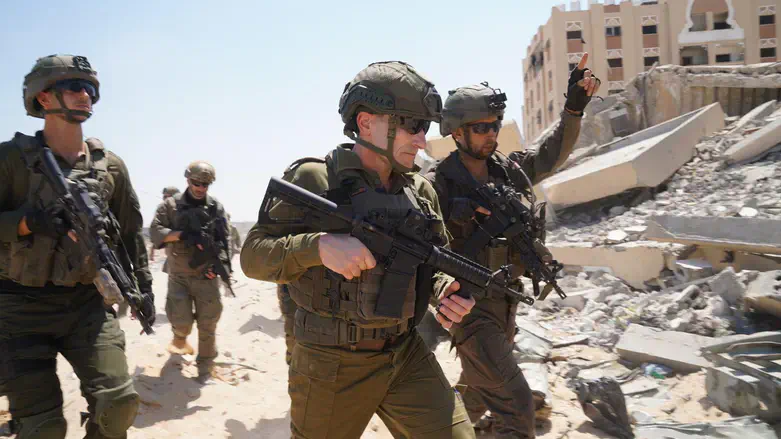
Foreign and Israeli donors alike have expressed outrage over the IDF's plan to forbid soldiers from using the equipment that they have been sending to equip combat units.
According to Israel Hayom, the donations cover nearly everything for the IDF infantrymen except their weapons and include life-saving items such as armor and medical supplies. The report also details other items that have become important on the modern battlefield - ear and eye protection, fire-resistant uniforms, tactical gloves and boots, and weapon attachments like modern sights and lights.
"We started out helping friends find gear in the days after the October 7th massacre,'' one donor commented. ''Soon, more and more soldiers were contacting us, and it has grown into a huge project.'' He claimed that his project now includes a global network of pro-Israel donors looking to make a difference and units from one end of Israel to the other who are still clamoring for high-quality gear ten months into the war. He claimed that his project alone had provided more than 20 million dollars of equipment to IDF troops.
Similar projects to create networks of donors and connect them with underequipped units sprang up almost instantly as the war broke out. Known colloquially in Israel as hamalim, a Hebrew acronym meaning 'war room', they are often entirely comprised of civilian volunteers, coordinating shipments over messaging apps like WhatsApp and Telegram and moving supplies throughout Israel in private vehicles or public transit until soldiers can collect them and bring them to their units.
''When a soldier is going to risk his life and asks for donations, we cannot simply give them 100 shekels and wish them luck. We ask those who manufacture or sell the equipment for help and send them the money to ship the equipment. There are fathers of five out there and eighteen-year-olds who are just starting their lives. Sometimes, when talking to a bereaved family, you realize that better equipment might have saved their life if a bullet hadn't penetrated their armor, and your heart breaks realizing you could have saved them. We have a moral obligation to give everyone the best chance we can.''
He added that donors have been repeatedly shocked by the equipment soldiers say they have been issued. ''There are helmets from 1979 and vests from 1991 out in the field. It's ridiculous. There is no way they will hold up against modern weapons.''
The same donor tells how he heard the concerns that donated equipment was not suitable for the battlefield either, and undertook to research and learn what was safe to send to the soldiers. ''I consulted with safety experts and veterans and found the same stores that the IDF usually buys from. I say to the IDF - soldiers' lives are more important than anything. Let us take care of them."
The IDF responded to the report: "Throughout the war, the IDF has repeatedly emphasized that acquisition of military equipment is an organized, orderly and professional procedure, which contains all the required tests, both in the context of the quality of the equipment and its suitability for its purpose and in ensuring the required safety standard," the IDF spokesman said in response. "There is no intention to confiscate equipment that meets the IDF standard."
"Using non-standard equipment may endanger the lives of the soldiers in the field due to the lack of operational effectiveness and/or safety risk. Helmets go through obsolescence tests to verify their suitability. Infantry and engineering units received combat helmets that meet IDF standards, unlike some of the helmets that are donated, which do not meet the IDF standards even though they are new."
"The IDF is working to ensure that all soldiers receive all the required operational equipment. Discrepancies can be reported up the chain of command, or at the IDF complaints department, available to all soldiers at *3653."
The Ground Forces Command has recently issued an instruction that combat units must turn in all donated equipment, and provide an accounting of where all donated equipment was used since the beginning of the war. This comes on top of an existing directive that no units accept any further donations and a warning that doing so could lead to disciplinary action against the soldiers who used the donated gear. The IDF claims that the orders have been issued for the soldiers' safety, and are intended to prevent friendly fire, unsafe equipment, and theft and resale of equipment between units.

